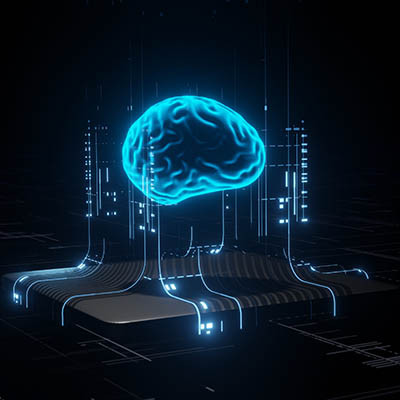Directive Blogs
Artificial Intelligence Has Negatives and Positives
Artificial intelligence has always been an intriguing concept, from the works of Isaac Asimov to the initial work at Dartmouth College in the 1950s. Nowadays, many of the technologies that we rely on each day incorporate some version of artificial intelligence… and more progress is made each day. Of course, for all its benefits, artificial intelligence can also create some problems for businesses.
Let’s explore these advantages and disadvantages, shall we?
A Brief Definition of Artificial Intelligence
Artificial intelligence is more or less what it sounds like. Rather than having a computer system that relies on human input and foresight, artificially intelligent systems are trained to recognize patterns and potential outcomes in data and are given the prerogative to act on the insights it gleans, improving its success record over time as it does so. If you’ve heard of machine learning or witnessed image recognition processes taking place, that’s AI at work.
As you might imagine, the term “AI” covers a variety of technologies and has an equally wide variety of applications to business processes. This is primarily where AI shows its benefits.
Advantages of Business AI
Let’s review some of the primary advantages that AI can offer a business.
- Business Pattern Optimization - When you consider all the data that your business generates in even a day, the thought of analyzing this data to find patterns, opportunities, or inefficiencies to resolve is understandably daunting. AI can handle this analysis, delivering predictions that can help improve a pretty comprehensive list of business concerns, like maximizing revenue growths, condensing sales cycles, and generating improved returns-on-investment.
- Cost Reduction - Artificial intelligence lends itself to automation, which means that the cost and/or labor-intensive tasks that your team currently performs might be able to be completed automatically. Not only can this help reduce costs, it can help you generate revenues by freeing your team to work on other tasks. Speaking of which...
- Revenue Increases - In addition to allowing you to improve your processes in terms of your human resources, AI can help you identify new opportunities to bring in capital by gleaning additional insights from your collected data. Furthermore, AI can be used to optimize many external processes, helping make your marketing activities that much more effective.
Of course, there are a few drawbacks to AI that need to be addressed and mitigated.
Disadvantages of Business AI
Let’s break down some of these drawbacks:
- Fear and Misunderstanding - We’re all too familiar with the reputation that AI has been given by pop culture. Heck, even Asimov wrote about the potential dangers that AI could present. It is either something to be feared or the deus ex machina that can solve any and all problems. Neither is the case. In reality, AI has definitive limits that prevent it from solving all of our problems or accomplishing world subjugation.
- The Data Required - Any automated system is only going to perform as well as the data it is referencing allows it to… and AI needs a lot of data before it can accomplish anything. On top of that, it needs to be the right data, organized properly. This alone can be a big hurdle for a business.
- How to Explain It - Some artificially intelligent systems don’t exactly give the user a full picture of how it came to its conclusions. While this might be fine if all goes as planned, it can create a real calamity when the system makes a mistake and there’s no way to figure out why.
So, Is AI a Good Tool for Businesses?
In a lot of ways, yes… so long as you understand its limits and put forth the effort needed to set it (and by extension, yourself) up for success.
Directive can help you manage the technology your business’ processes rely on, automating what we can (and properly) so that your team can accomplish as much as they can. Find out more by calling 607.433.2200 today.


